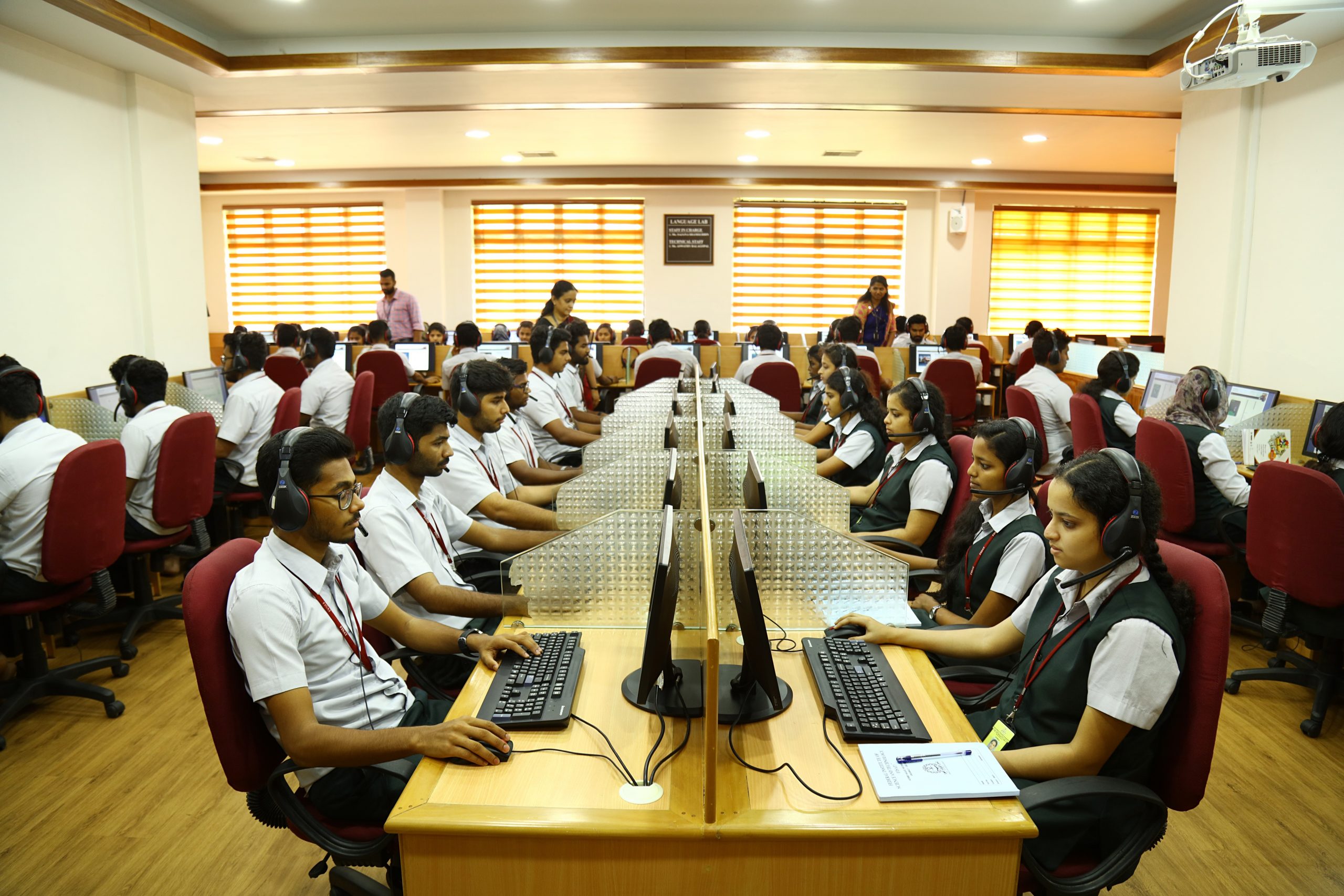Language Lab

The Language Lab is an audio visual installation used as an aid in English language teaching with soecial focus on communication competence and development of soft skills. It is teacher controlled system connected to a number of student consoles, each having a headset with microphone. The fully air-conditioned lab makes use of state of the art faclities like projector and audio system to train students in public speaking, by laying special emphasis on accent training. The cutting edge training, students receive in the Language Lab polishes their reading, listening and writing skils, and add to their employability. It provides opportunities for students to enhance their skills in communication which is a prerequisite to spark their personality and get placed in reputed firms.
Faculty-in-charge: Ms. Sajana Shamsuddin, Assistant Professor
Staff in Charge:Ms. Aswathy Balagopal, Lab Demonstrator
Physics Lab

Engineering Physics Lab aims to impart the technical skill for the students to handle precision tools and electronic gadgets. This enables the students to understand the scientific problems and physical concepts.Physics Laboratory is having a floor area of 900 square feet inclusive of the area to do the calculation part. As future engineers, the students are expected to learn and apply the concepts in Physics in the field of Engineering.
Faculty-In-Charge: Ms.Vidya T P, Assistant Professor
Staff in Charge: Ms Nithya S Varma, Lab Demonstrator
Chemistry Lab

Engineering Chemistry Lab focuses on demonstrating and experimenting with practical aspects in diverse nuances of Engineering Chemistry for our students. This will empower the students to understand the scientific and environmental problems and various concepts in Engineering Chemistry. The laboratory also boosts the research attitude of the students and helps them in their project works.Chemistry Laboratory is having a floor area of 890 square feet inclusive of the area to do the stock room. As future engineers, the students are expected to learn and apply the concepts in Chemistry in the field of Engineering.
Faculty-in-charge: Mr. Eldhose P Jacob, Assistant Professor
Staff in Charge: Ms. Nisha P M, Lab Demonstrator